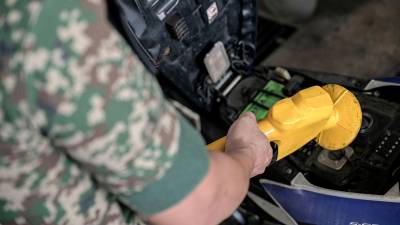CYBERJAYA: The government will announce a revised rate for the Automatic Pricing Mechanism soon to ensure petrol stations remain viable following the targeted RON95 petrol subsidy implementation.
Minister of Domestic Trade and Cost of Living Datuk Armizan Mohd Ali confirmed a proposal to review the rate has been submitted to the Ministry of Finance after engagement sessions with petroleum companies and petrol station associations.
He stated that the Ministry of Finance has committed to prioritising the APM rate review as an initial step following the lengthy implementation of the Subsidised Diesel Control Scheme.
“We are aiming to execute the Subsidised Petrol Control Scheme as soon as possible, ideally within a month of the targeted subsidy’s launch,“ he told reporters after presenting Fleet Cards at a petrol station.
Armizan expressed satisfaction with oil companies and petrol station operators’ cooperation in ensuring smooth targeted RON95 subsidy implementation, noting minor issues were resolved promptly.
He emphasised that the government had previously committed to reviewing the APM rate and addressing other long-standing industry concerns.
“This review directly responds to persistent appeals for operational costs and profit margins to be factored into the mechanism,“ he added.
In a separate matter, Armizan asserted that his ministry will take stern action against public transport companies instructing employees to use identification cards to purchase subsidised fuel at the public rate of RM1.99 per litre.
He clarified that the RM1.99 subsidy is intended for individual citizens, not companies that already receive a subsidised rate of RM2.05.
“Companies should not exploit this system as they already receive a subsidised rate significantly below the market price,“ he added.
Recent social media allegations claimed a company instructed employees to use personal identification cards to purchase fuel under the BUDI95 subsidised scheme at RM1.99 per litre.
According to widely circulated messages, employees were reportedly asked to use individual monthly fuel quotas for company-related travel.
The messages further alleged employees were advised to use family members’ identification cards once their personal 300-litre monthly quota was exhausted. – Bernama
